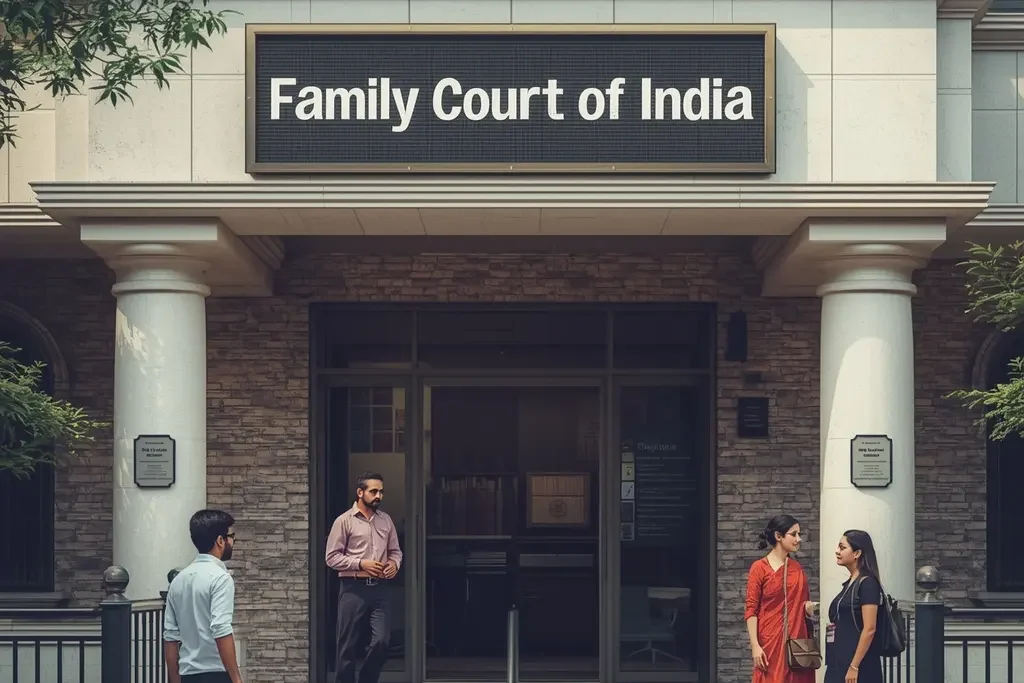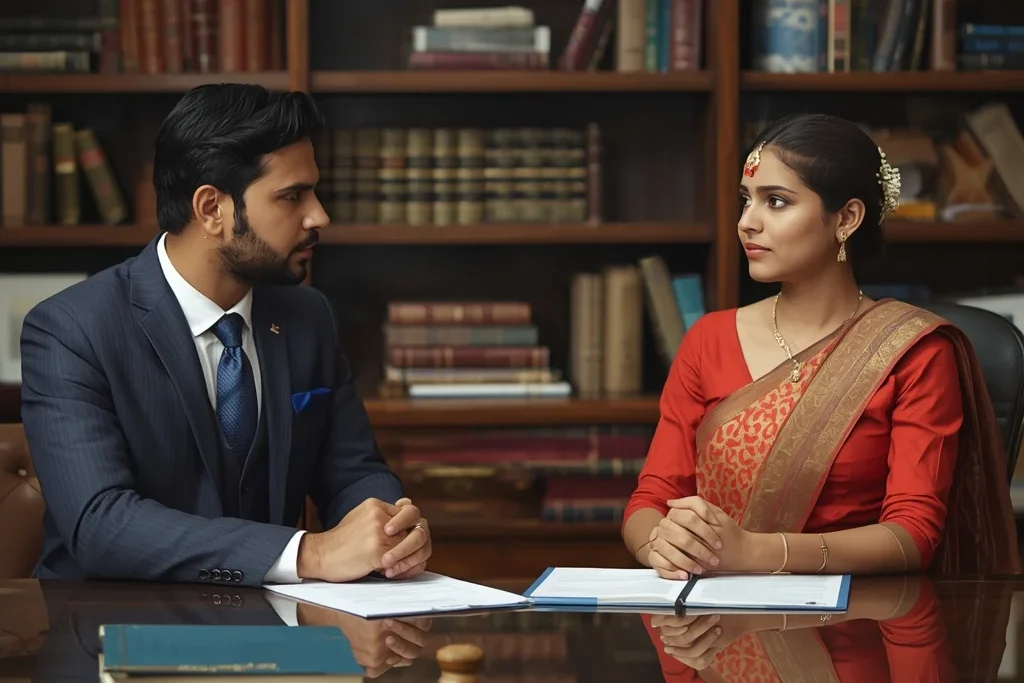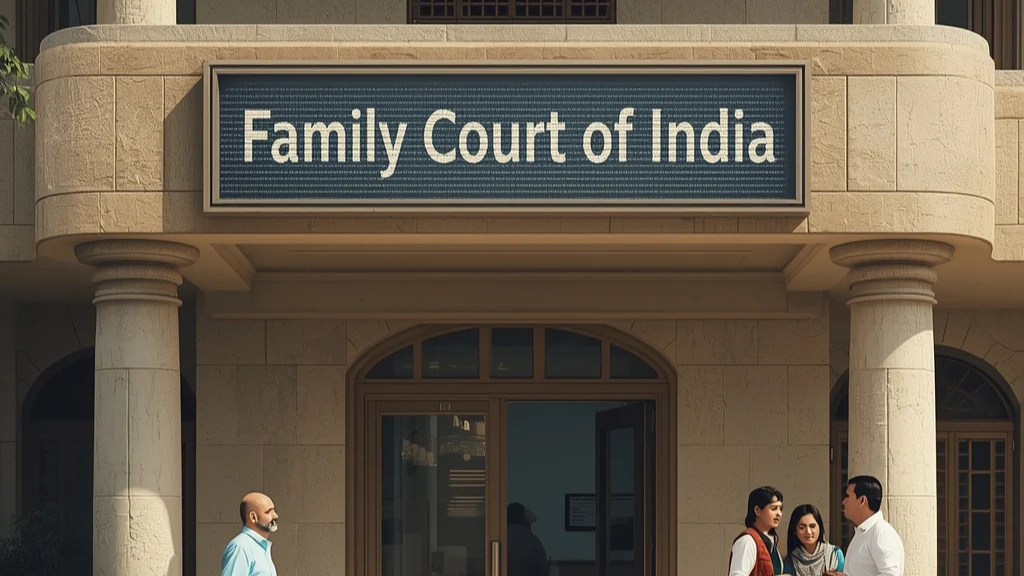Introduction
The Family Court Law in India plays a essential function in resolving disputes that rise up interior families. It makes a speciality of problems alongside aspect Marriage and Divorce Laws in India, Child Custody and Guardianship, protection, and belongings topics associated with own family relationships. Installation beneath the circle of relatives courts act, 1984, those courts reason to provide a specialised and fast system for resolving own family troubles via reconciliation and counseling in advance than intending to litigation.
In this post we dive in detailed review of own family court regulation in india, explaining its purpose, jurisdiction, and processes. It covers key components like marriage and divorce laws, child custody and guardianship, protection and alimony policies, and circle of relatives dispute decision. The item highlights how circle of relatives courts prioritize mediation and reconciliation over litigation, protect the welfare of children, and make sure timely justice.
What is the Function of Family Court in India?

The Family Court Law in India is designed to cope with all topics related to Marriage and Divorce Laws in India, and the welfare of kids. It serves as a platform for Family Dispute Resolution, in which judges and counselors artwork collectively to help families obtain mutual understanding before getting into a right trial.
Own family courts address a massive kind of times, which incorporates disputes associated with Marriage and Divorce Laws in India, Child Custody and Guardianship, and Maintenance and Alimony Rules. The court docket docket furthermore gives mental assist and criminal guidance to couples looking for separation or dad and moms involved in custody disputes.
The cause is to save you prolonged litigation and guard the emotional nicely-being of children and circle of relatives humans worried in the conflict.
Suggested Read –Reservation in India: Key Landmark Judgments and Policies
How Does the Family Court System Work in India?
The Family Court Law in India operates under the principles of quick, sincere, and amicable resolution. Every district with a populace exceeding one million is remitted to have at least one family courtroom. The ones courts prioritize mediation and counseling earlier than proceeding with trials.
The manner begins offevolved at the equal time as one party files a petition. The opposing party is then summoned to seem earlier than the court docket docket. In advance than being attentive to evidence, the court docket docket docket arranges a reconciliation consultation — a crucial step in Family Dispute Resolution.
| Step | Description |
|---|---|
| 1. File Petition | Submit a petition for disputes like divorce, custody, or maintenance. |
| 2. Notify Opposing Party | Court summons the other party. |
| 3. Mediation | Court encourages reconciliation before trial. |
| 4. Trial | Hearings conducted if no agreement is reached. |
| 5. Judgment | Court passes orders on custody, divorce, or maintenance. |
| 6. Appeal | Aggrieved parties can appeal in High Court within 30 days. |
If reconciliation fails, the case proceeds to formal hearings. Sooner or later of this degree, the court docket also can have a take a look at troubles which includes Child Custody and Guardianship, department of marital property, and Maintenance and Alimony Rules. The very last judgment desires to ensure fairness, balance, and protection of the rights of all activities concerned.
What Cases Come Under Family Court Jurisdiction in India?
Below the Family Court Law in India, jurisdiction covers all disputes associated with family topics. Those consist of:
- Marriage and Divorce Laws in India – which include nullity, judicial separation, restitution of conjugal rights, and dissolution of marriage.
- Child Custody and Guardianship – identifying who need to have care and manipulate of a minor infant after separation or divorce.
- Maintenance and Alimony Rules – ensuring monetary guide for a based accomplice, youngsters, or elderly parents.
- Property disputes among spouses or circle of relatives contributors.
- Legitimacy of marriage or youngsters.
- The Family Dispute Resolution device permits instances to be treated in a miles a lot much less formal putting than civil courts, making sure a family-centric method that prioritizes relationships over inflexible crook strategies.
Click to view –Scheme for Unemployed Graduates
How to File a Case in Family Court in India?

Submitting a case underneath the Family Court Law in India includes numerous steps. The technique is distinctly honest but have to be observed cautiously to make certain straightforward listening to and judgment.
- Put together the petition: the birthday party in search of criminal remedy need to draft a petition outlining the dispute, supported with the aid of critical files.
- Submit to the family court docket: the petition is filed within the Family Court Law in India having jurisdiction over the location of house or marriage.
- Observe to the alternative birthday celebration: after submission, the court docket problems a phrase to the opportunity celebration to appear for a being attentive to.
- Mediation and counseling: the courtroom docket arranges intervals to facilitate Family Dispute Resolution, encouraging mutual agreement.
- Trial and judgment: if mediation fails, the case proceeds to trial wherein the determine examines evidence and passes a final order.
Whether it’s a case associated with Marriage and Divorce Laws in India, Child Custody and Guardianship, or Maintenance and Alimony Rules, the way guarantees each aspects are given identical possibility to offer their case.
What Are the Rights of Parents in Child Custody Cases?
Parental rights below the Family Court Law in India emphasize the welfare of the kid particularly else. In custody cases, the court docket docket docket considers elements much like the infant’s age, emotional wishes, and the financial stability of each determine.
Under Child Custody and Guardianship provisions, the court docket docket may additionally moreover grant custody to at the least one determine on the identical time as permitting visitation rights to the opposite. The non-custodial figure continues the proper to meet and communicate with the kid, ensuring the child keeps emotional bonds with each dad and moms.
In powerful cases, the courtroom docket moreover consults the child’s opportunities, particularly if they’ll be mature enough to specific a reasoned choice. The ultimate motive isn’t always to punish both decide however to serve the first-rate pastimes of the kid.
| Right | Description |
|---|---|
| Custody | Court may grant custody to one parent based on the child’s welfare. |
| Visitation | Non-custodial parent can meet and spend time with the child. |
| Decision-Making | Parents can be involved in child’s education and health decisions. |
| Maintenance | Parents may provide financial support for the child. |
| Child’s Voice | Court may consider the child’s wishes if they are mature enough. |
Even after a divorce is finalized beneath Marriage and Divorce Laws in India, each parents percentage duties for the kid’s upbringing. Family Dispute Resolution efforts are made to avoid hostility, developing a more fit co-parenting environment.
Explore more –How These Rules Keep Kids Safe Online
How Long Does a Family Court Case Take in India?

The duration of instances underneath the Family Court Law in India varies relying on the character of the dispute and the cooperation amongst occasions. Commonly, instances may moreover take everywhere from six months to two years.
Elements influencing the time-frame embody the complexity of Family Dispute Resolution, variety of hearings, willingness to settle, and the backlog of instances inside the court.
However, the authorities and judiciary constantly emphasize quicker resolutions, mainly in instances concerning Child Custody and Guardianship and Maintenance and Alimony Rules.
Family courts frequently choose mediation because it permits disputes to be resolved internal some intervals, keeping off prolonged litigation. This approach ensures that households experience loads much less emotional and economic pressure.
Can Family Court Decisions Be Appealed in Higher Courts?
Sure, alternatives made below the Family Court Law in India may be appealed within the excessive court. Steady with segment 19 of the own family courts act, 1984, any birthday party aggrieved with the beneficial useful resource of the judgment of a family court docket can record an attraction internal 30 days from the date of the decree or order.
Appeals generally upward thrust up in instances concerning Marriage and Divorce Laws in India, Child Custody and Guardianship, or disputes associated with Maintenance and Alimony Rules. While the high court docket has the authority to overturn or regulate the selection, it often upholds own family courtroom docket judgments which may be based on the welfare and stability of the circle of relatives.
The appellate system ensures that justice is preserved, and people have the proper to project any perceived prison or procedural errors. However, the emphasis remains on reconciliation and Family Dispute Resolution anywhere viable.
Related Read: Powerful Reforms or Risky Move for Workers?
FAQ of Family Court Law
Does wife get 50% after divorce in India?
Not automatically; division of property depends on mutual agreement, court orders, and contribution during marriage.
What is the 7-year rule of marriage in India?
After 7 years, couples can claim certain inheritance or property rights under personal or Hindu Succession laws.
Who loses most in a divorce?
Typically, both parties face emotional, financial, and social losses; children often suffer the most indirectly.
What are the new divorce rules in India 2025?
Focus on mutual consent, faster procedures, online filings, shared custody, and mandatory mediation before trial.
How do men act after divorce?
Reactions vary: some experience stress, anger, or loneliness, while others focus on rebuilding life and co-parenting.
What is the latest judgement for divorce?
High Courts and Supreme Court emphasize mutual consent, child welfare, and fair alimony in recent 2025 rulings.
Conclusion
The Family Court Law in India is an vital pillar of the justice device, ensuring that own family-associated disputes are settled with compassion, equity, and a focal point at the welfare of all participants. Whether or not or now not it’s issues associated with Marriage and Divorce Laws in India, Child Custody and Guardianship, or Maintenance and Alimony Rules, the family court docket offers a specialised mechanism for battle choice.
Thru Family Dispute Resolution, the crook system promotes concord and knowledge amongst circle of relatives people in preference to disagreement. Via encouraging speak and mediation, it preserves relationships and minimizes emotional distress, mainly for kids stricken by own family breakdowns.
In contemporary India, own family courts maintain to conform, incorporating technology and faster techniques to cope with touchy issues successfully. In the long run, the cause remains easy — to supply justice that no longer exceptional resolves disputes but additionally restores dignity, compassion, and stability to Indian households.


Thank you for your sharing. I am worried that I lack creative ideas. It is your article that makes me full of hope. Thank you. But, I have a question, can you help me? https://accounts.binance.info/zh-CN/register-person?ref=WFZUU6SI